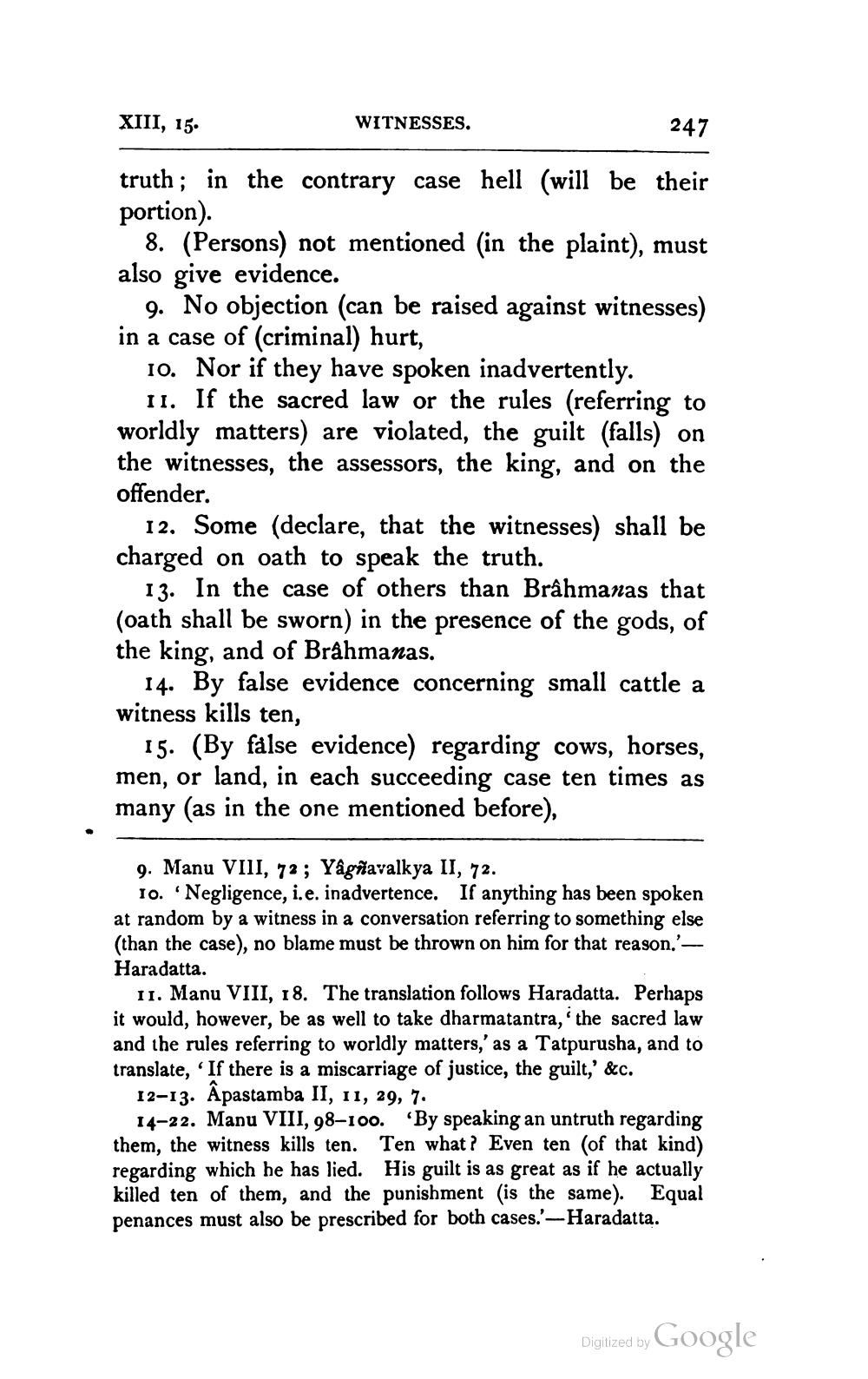________________
XIII, 15.
247
truth; in the contrary case hell (will be their portion).
8. (Persons) not mentioned (in the plaint), must also give evidence.
9. No objection (can be raised against witnesses) in a case of (criminal) hurt,
10. Nor if they have spoken inadvertently.
11. If the sacred law or the rules (referring to worldly matters) are violated, the guilt (falls) on the witnesses, the assessors, the king, and on the offender.
WITNESSES.
12. Some (declare, that the witnesses) shall be charged on oath to speak the truth.
13. In the case of others than Brahmanas that (oath shall be sworn) in the presence of the gods, of the king, and of Brahmanas.
14. By false evidence concerning small cattle a witness kills ten,
15. (By false evidence) regarding cows, horses, men, or land, in each succeeding case ten times as many (as in the one mentioned before),
9. Manu VIII, 72; Yâgnavalkya II, 72.
10. Negligence, i.e. inadvertence. If anything has been spoken at random by a witness in a conversation referring to something else (than the case), no blame must be thrown on him for that reason.'-Haradatta.
11. Manu VIII, 18. The translation follows Haradatta. Perhaps it would, however, be as well to take dharmatantra, the sacred law and the rules referring to worldly matters,' as a Tatpurusha, and to translate, 'If there is a miscarriage of justice, the guilt,' &c.
12-13. Âpastamba II, 11, 29, 7.
14-22. Manu VIII, 98-100. 'By speaking an untruth regarding them, the witness kills ten. Ten what? Even ten (of that kind) regarding which he has lied. His guilt is as great as if he actually killed ten of them, and the punishment (is the same). penances must also be prescribed for both cases.'-Haradatta.
Equal
Google
Digitized by




